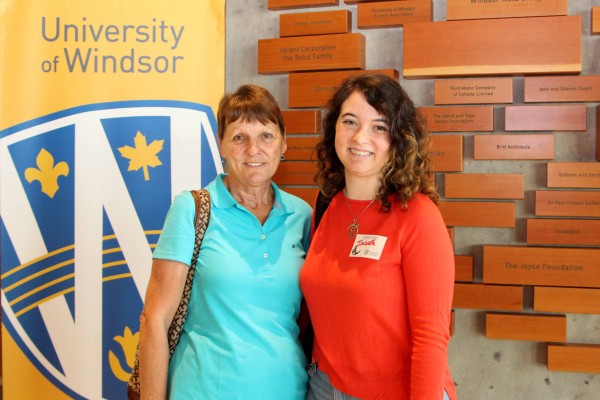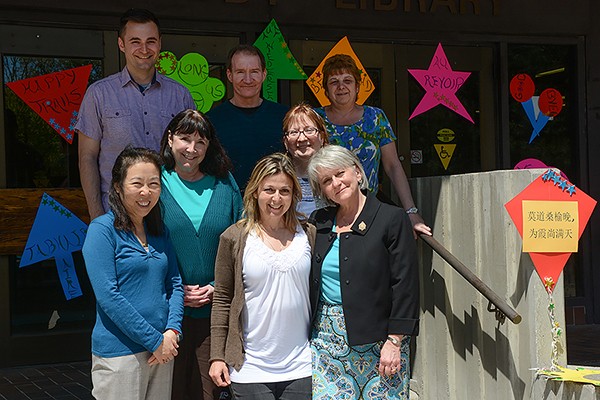 Isabelle Hinch and her grandmother Celine Lepine take in Head Start activities
Isabelle Hinch and her grandmother Celine Lepine take in Head Start activities
Visitors to Head Start orientation are finding the UWindsor campus a welcoming place, says Beth Oakley, director of the Student Success Centre.
“So far we have only been getting positive comments from new students and their families,” she says. “The weather has been great and the grounds look beautiful. Kudos to all the faculty and staff who have been working so hard to ensure a wonderful reception. It’s especially great to see all the student volunteers who have come out to help and share their own UWindsor experiences.”
The program, which began Friday and runs through June 6, offers entering students an introduction to campus life, with information sessions on making a successful transition to post-secondary study, tours of buildings and facilities, presentations on course selection and registering for classes, and a chance to obtain student ID, parking permits, and an e-mail account.
“I wanted to come and familiarize myself with the university and meet people in my program – I’m nervous but excited,” said participant Isabelle Hinch, who will begin studies in the Faculty of Arts, Humanities and Social Science in September after graduating from L’Essor High School. “We’re still so young so it’s important to experience things and develop your interests.”
Her grandmother, Celine Lepine, accompanied Isabelle and said Head Start is important in helping her to finalize course selection.
“She has an older brother who goes to the University of Windsor so we’ve definitely learned a lot from him about how things work. In the first years we want her to keep her options open so she can find her passion – we think an arts and sciences degree will help her do that.”



